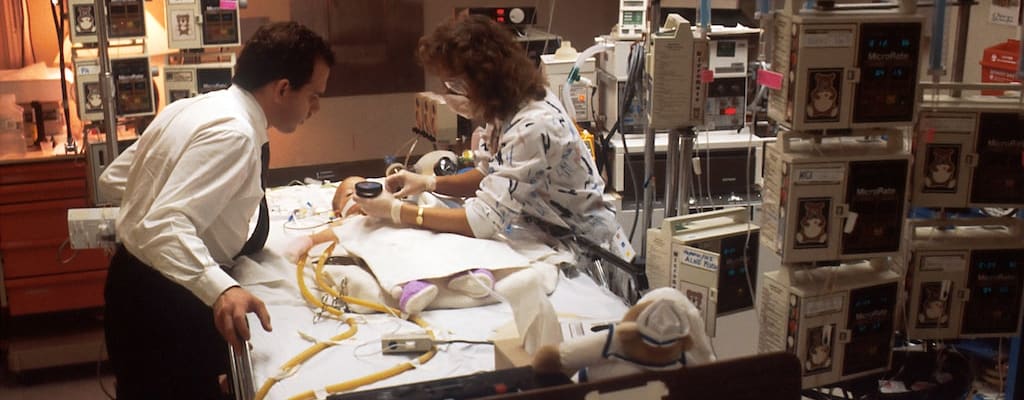be at the plague: Idiom Meaning and Origin
What does ‘be at the plague’ mean?
The idiom be at the plague means to be present or involved in a situation that is chaotic, unpleasant, or dangerous. It is typically used to describe being in a highly undesirable or difficult circumstance.

Idiom Explorer
An idiom meaning to be in a difficult or challenging situation that needs to be resolved or fixed. It implies being in a state of trouble or inconvenience.
The idiom "in the wrong place at the wrong time" means being in a situation where something bad happens due to unfortunate timing or circumstances.
The idiom "in the toilet" means that something is in a troubled or bad state, typically referring to a situation that has gone wrong or is failing. It is a casual expression that implies a negative outcome or result.
The idiom "in the thick of it" means being deeply involved or immersed in a difficult or challenging situation.
The idiom "in the thick of" means to be deeply involved or actively participating in a situation or activity.
The idiom "in the hot seat" means to be in a difficult or uncomfortable position, often under scrutiny or facing intense questioning.
The idiom "in the hospital" means that someone is currently receiving medical care in a healthcare facility due to an illness or injury.
The idiom *in the drink* means to be in a difficult or unpleasant situation, often caused by one's own actions or decisions. It originates from the idea of someone falling into water or a drink, representing a sudden and unexpected mishap or trouble.
The idiom "in for it" means to be in trouble or about to face negative consequences for one's actions or behavior.
The idiom "in at the deep end" means to be thrown into a difficult or challenging situation without any preparation or guidance.
The Inescapable Dread
The idiom "at death's door" is closely related to the phrase "be at the plague." Both idioms invoke images of danger and the potential for harm. While "be at the plague" focuses on avoiding or distancing oneself from something undesirable or dangerous, "at death's door" conveys the idea of being on the brink of death or experiencing a severe illness or injury.
The idiom "out of fix" is also connected to the concept of being "at the plague." "Out of fix" means to be in a state of disrepair or not functioning properly. This idiom implies that something is broken or malfunctioning, which can be seen as undesirable or dangerous. Similarly, being "at the plague" suggests being in a situation that is not ideal and may pose risks to one's well-being.
Another related idiom is "at the best of times." This phrase is used to emphasize that a situation is challenging or difficult even under normal circumstances. It implies that things become even more problematic or dangerous when facing additional obstacles or adversities. The idiom "be at the plague" aligns with this notion by highlighting the inherent dangers and difficulties of being in close proximity to a deadly disease.
The idiom "in the wrong place at the wrong time" also shares similarities with "be at the plague." Both idioms describe being in an unfortunate or dangerous situation due to timing or circumstances. "In the wrong place at the wrong time" implies that one's presence in a particular location during a specific moment leads to negative consequences. Likewise, being "at the plague" suggests being in close proximity to a disease that can have deadly consequences.
"in the thick of it" is another idiom that resonates with the phrase "be at the plague." This expression describes being deeply involved or immersed in a situation, usually a challenging or chaotic one. It implies being surrounded by difficulties or dangers. Similar to "in the thick of it," being "at the plague" suggests being in the midst of a harmful or dangerous environment, exposing oneself to the risks associated with a deadly disease.
Example usage
Examples of how the idiom "be at the plague" can be used in a sentence: 1. "I'm sorry, but I won't be able to attend the meeting tomorrow. I'll be at the plague with a terrible flu." 2. "She couldn't make it to the party as she was at the plague, dealing with a family emergency." 3. "The entire office was empty today because most of the employees were at the plague, recovering from a stomach bug."
These examples showcase the idiom "be at the plague" used in sentences to indicate being absent or unavailable due to illness or other unfortunate circumstances. The idiom metaphorically compares the situation to a plague, emphasizing its severity and impact. In each sentence, the idiom is used to provide a reason or explanation for someone's absence or unavailability. It is important to note that this idiom is not commonly used in modern English and may sound archaic or poetic in nature.
More "Disease" idioms



